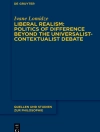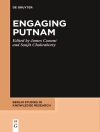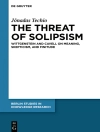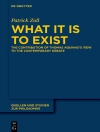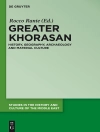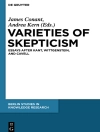This book contends that Africa’s sustainable development must be built on African identity and values. Contributors reflect of the role of values in Africa’s effort to overcome poverty, the focus of SDG 1. The volume reflects on how indigenous values such as Ubuntu constitute a critical resource in addressing poverty. It reiterates the importance of positioning the response to poverty in Africa on the continent’s own, home grown values. Contributors also interrogate how values such as integrity, hard work, tolerance, solidarity, respect and others serve to position Africa strategically to overcome poverty. The volume focuses on how values can help Africa to overcome challenges such as corruption, violence, intolerance, competitive ethnicity, xenophobia, misplaced priorities and others. It provides fresh and critical reflections on the role of values and identity in anchoring Africa’s development in the light of SDG 1.
Tabela de Conteúdo
1 Introduction: Values and Sustainable Development in Africa.- 2 The Ethics and Politics of Conceptualizing Values in Africa.- 3 Africa and the Quest for Sustainable Development: A Critical Review.- 4 Race, Colonialism, Ubuntu and Africa’s Development.- 5 African Identity, Morality and Well-Being.- 6 Identity, Religion/Spirituality, Character Values, and Development in Youthful Africa.- 7 Street-Level Pan-African Solidarity and Development: Nigerian Netizens and the COVID-19 Drug from Madagascar.- 8 Moral Values and Personhood: The Missing Link in International Development Interventions.- 9 “Balancing the Ticket”: Ethnicity and Regional Politics in Ghana’s Fourth Republic (1992–2016).- 10 Tolerance and Development in Africa: A Look at Ethnicity, Xenophobia and Religious Conflict.- 11 Corruption and Under-Development in Africa: An Indictment of African Religiosity?.- 12 “Witches” of the Twenty-First Century: Invoking the Relevance and Resilient Character of African Spirituality in Changing Times.- 13 Towards an Alternative Notion of ‘Hard Work’ for Africa’s Development.- 14 Social Development and Leadership in Africa.- 15 Re-conceptualising Womanhood and Development in Post-colonial Zimbabwe: A Social Conflict Perspective.- 16 Personhood in African Philosophy: Beyond Hasty Generalisations.- 17 Identity Dispositions, Development and Economic Progress in Africa.
Sobre o autor
Ezra Chitando is a Professor of History of Religions at the University of Zimbabwe and Theology Consultant on HIV for the World Council of Churches.
Eunice Kamaara is Professor of Religion at Moi University, Eldoret, Kenya.




